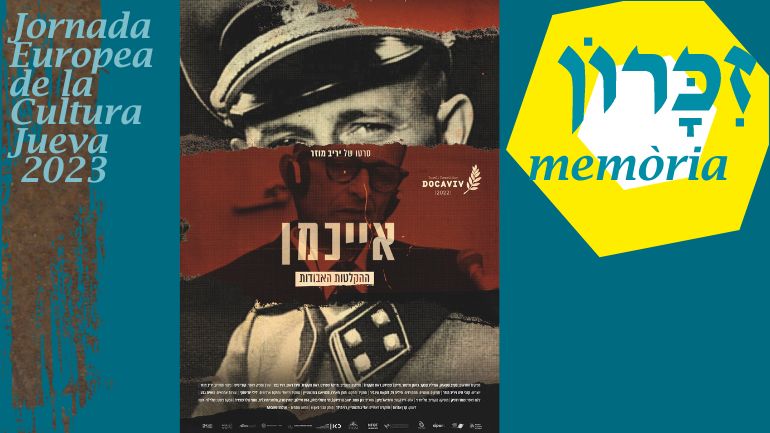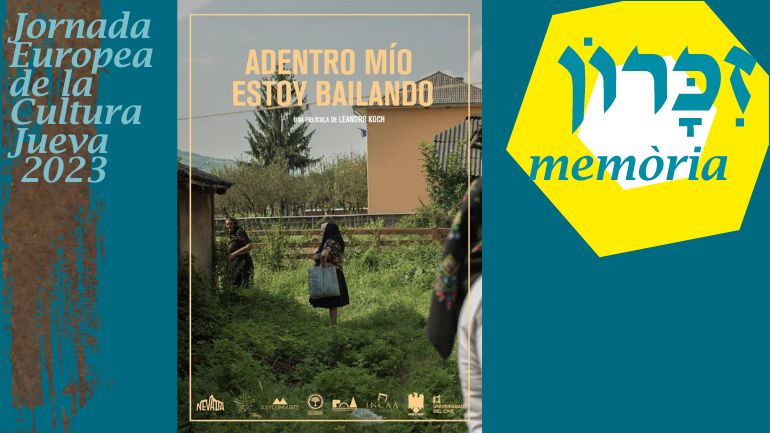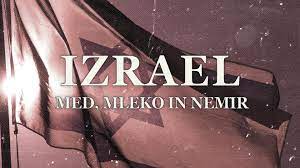26 Frauen, die in Israel bei Spielfilmen Regie geführt haben, berichten über ihre Erfahrungen im Regiestuhl. Von den ersten Regisseurinnen – Elida Gera – bis zu den heute arbeitenden. Sie schwingen mit, kollidieren, lösen sich voneinander und verbinden sich miteinander. Ihre Geschichten bilden eine filmische Verquickung unterschiedlicher und ähnlicher Frauen. Nominiert für den Ophir Award für den besten israelischen Dokumentarfilm. (Israel 2020, Smadar Zamir, 57 Min., Hebräisch mit engl. Untertiteln)
Eintritt frei.
Anmeldung bis zum 19.8.2024 unter: veranstaltungen@ij-n.de oder Tel. 0178 / 6723594. Die Veranstaltung ist Teil der Jüdischen Kulturtage zwischen Harz und Heide, die 2024 bereits zum fünften Mal stattfinden. Sie wird durch das Israel Jacobson Netzwerk und die Stadt Braunschweig organisiert.
26 Frauen, die in Israel bei Spielfilmen Regie geführt haben, berichten über ihre Erfahrungen im Regiestuhl. Von den ersten Regisseurinnen – Elida Gera – bis zu den heute arbeitenden. Sie schwingen mit, kollidieren, lösen sich voneinander und verbinden sich miteinander. Ihre Geschichten bilden eine filmische Verquickung unterschiedlicher und ähnlicher Frauen. Nominiert für den Ophir Award für den besten israelischen Dokumentarfilm. (Israel 2020, Smadar Zamir, 57 Min., Hebräisch mit engl. Untertiteln)
Eintritt frei.
Anmeldung bis zum 19.8.2024 unter: veranstaltungen@ij-n.de oder Tel. 0178 / 6723594. Die Veranstaltung ist Teil der Jüdischen Kulturtage zwischen Harz und Heide, die 2024 bereits zum fünften Mal stattfinden. Sie wird durch das Israel Jacobson Netzwerk und die Stadt Braunschweig organisiert.
During the Oslo Jewish Film Festival, 5 films with a Jewish theme will be shown, two screenings of each film:
"Four Winters" and "Vishniac" are new documentaries, respectively about Jewish resistance during the Second World War and about the photographer Roman Vishniac. "Kidnapped" and "Avenue of the Giants" are both new fiction films, the first set in 1850s Italy and the second about an encounter between a Holocaust survivor and an insecure American teenager. In addition, we are showing "Madame Rosa", a classic from 1977 that garnered good reviews and won prestigious awards in the 70s.
The Oslo Jewish Film is organized in close collaboration with Cinemateket, which is based in Kvadraturen in Oslo. Read more about the films and buy tickets on Cinemateket's website.
Polish version below
—————–
40 years after his Polish-Jewish mother and family escaped Poland to Denmark, Jacob, a young Danish film director, visits the building in Wrocław where the family lived. He tries to engage in conversations with the current tenants about a piece of furniture left there, an old German credenza. During the search, Jacob also involves his mother over the phone, which opens up new clues and wider perspectives
A personal, tragicomic story about how history and displacement of people affects the identity and human memory of different generations.
The director and protagonist of the film and initiator of the project KREDENS: LIVE, Jacob Dammas, is a Danish (of Polish-Jewish descent) documentary filmmaker and creator of cultural projects, based in Copenhagen and Warsaw.
Polish version below
—————–
40 years after his Polish-Jewish mother and family escaped Poland to Denmark, Jacob, a young Danish film director, visits the building in Wrocław where the family lived. He tries to engage in conversations with the current tenants about a piece of furniture left there, an old German credenza. During the search, Jacob also involves his mother over the phone, which opens up new clues and wider perspectives.
A personal, tragicomic story about how history and displacement of people affects the identity and human memory of different generations.
The director and protagonist of the film and initiator of the project KREDENS: LIVE, Jacob Dammas, is a Danish (of Polish-Jewish descent) documentary filmmaker and creator of cultural projects, based in Copenhagen.
World premiere of Pepi Fandango, a feature length documentary by Lucija Stojevic, at Warsaw Film Festival 39.
Short synopsis
Two old Viennese friends embark on a road trip to southern Spain. One is a Jewish Holocaust survivor haunted by the memory of Spanish Roma children singing flamenco in the camp, the other, his droll, guitar playing best mate, urges him to face the music.
The world premiere will be on October 7th, with the presence of the protagonist, Pepi, and director Lucija Stojevic, at 19:00 at the Atlantic Cinema D
The screening on October 8th will also have the presence of Pepi and Lucija and will be at 16:15, at the Atlantic Cinema C.
Screening of a documentary about a grandson searching for his unrecognized Jewish grandfather.
A few weeks before the opening of the Eichmann trial, transcripts of recorded conversations that Adolf Eichmann had had with a Dutch Nazi journalist, Willem Sassen, were mysteriously handed over to prosecutor Gideon Hausner. The conversations were held a few years before Eichmann was brought to Israel by the Mossad. During the trial, Eichmann tried to convince the judges that he was only a bureaucrat who carried out orders, but in the transcripts Eichmann was found boasting and proud of his significant role in planning and executing the Final Solution. For the first time, we will confront Eichmann with himself in full color, revealing the hidden factors and motives that succeeded in hiding these recordings.
Leandro is a frustrated Jewish wedding cameraman with no interest in his family’s religion. But when he falls in love with klezmer-playing clarinettist Paloma, he fabricates a documentary project on klezmer music in order to spend time with her. The film takes him through Eastern Europe in search of lost klezmer melodies that have been safeguarded by the Romani who lived alongside the Jews before the Second World War.
Award for Best First Opera – Berlinale 2023
The Jewish state, strung between the Mediterranean, Dead and Red Seas, has developed into a technological, economic and military power in 75 years. How did this Middle Eastern democracy survive in the world’s most challenging geopolitical neighborhood? Peace without peace? The documentary film Med, mleko i nemir by author Nejc Krevs sheds light on important historical, social and political milestones in the development of the modern Israeli state, from Zionist ideas, the Holocaust, the Jewish-Arab wars to the Israeli-Palestinian conflict, peace negotiations and diplomatic relations between Slovenia and Israel. Krevs’ documentary debut offers an insight into the phenomenon of Israeli social and cultural contradictions formed by newcomers from more than 150 countries. The condensed ethnic space of the 9-million-strong Israel strengthens the spirit of liberal and secular thought on the one hand, and the breakthrough of religious zeal and noble conservatism on the other.








